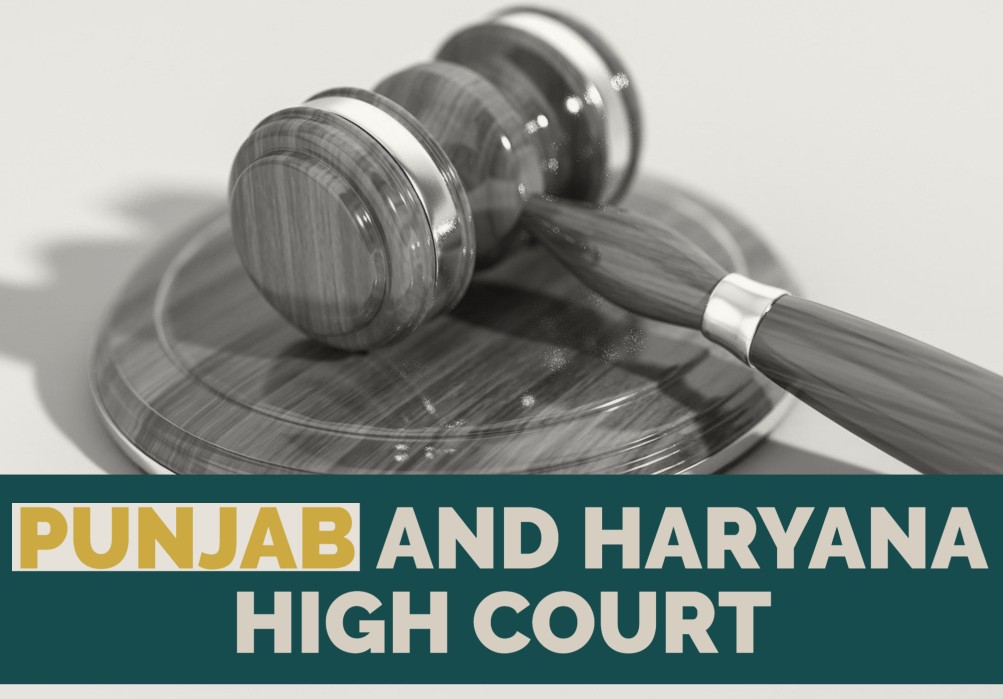In CRR-198-2019-PUNJ HC- P&H HC quashes proceedings pertaining to sections 324 & 506 IPC in light of settled law that limited jurisdiction to compound offence within framework of Sec.320 CrPC is not embargo against invoking inherent powers by HC vested in it u/s 482
Justice Anoop Chitkara [23-03-2023]

Read Order: RAJESH KUMAR AND ANOTHER VS. STATE OF PUNJAB AND ANOTHER
Mansimran Kaur
Chandigarh, March 25, 2023:Noting that the exercise of the inherent power for quashing complaint and all consequential proceedings is justified to secure the ends of justice, the Punjab and Haryana High Court has quashed a proceeding in a criminal case after considering the terms of compromise, placement of parties, the contents of the compromise deed and its objectives.
Justice Anoop Chitkara opined that the accused and the private respondent amicably settled the matter between them in terms of the compromise deed and the statements recorded before the concerned Court.
During the pendency of the petition, the accused and the aggrieved person compromised the matter and filed CRM for compounding of offence u/s 320 Cr.P.C. The State Counsel though opposed the same.
After considering the submissions, the Court noted that the accused and the private respondent amicably settled the matter between them in terms of the compromise deed and the statements were recorded before the concerned Court. A perusal of the documents revealed that the settlement was not secured through coercion, threats, social boycotts, bribes, or other dubious means and the aggrieved person willingly consented to the nullification of criminal proceedings.
The offences under section 324 and 506 IPC are non compoundable under Section 320 of Code of Criminal Procedure, 1973 (CrPC). However, without adjudicating this point, in the facts and circumstances peculiar to this case, the prosecution qua the non-compoundable offences can be closed by quashing the complaint and consequent proceedings, the Court further remarked.
Further reference was made to the case of Ram Prasad v State of Uttar Pradesh and to the case of Shiji @ Pappu v. Radhika.
Another reference was made to the case of Ramgopal v. The State of Madhya Pradesh, wherein it was held, “True it is that offences which are ‘non-compoundable’ cannot be compounded by a criminal court in purported exercise of its powers under Section 320 Cr.P.C. Any such attempt by the court would amount to alteration, addition and modification of Section 320 Cr.P.C, which is the exclusive domain of Legislature. There is no patent or latent ambiguity in the language of Section 320 Cr.P.C., which may justify its wider interpretation and include such offences in the docket of ‘compoundable’ offences which have been consciously kept out as non-compoundable. Nevertheless, the limited jurisdiction to compound an offence within the framework of Section 320 Cr.P.C. is not an embargo against invoking inherent powers by the High Court vested in it under Section 482 Cr.P.C.”.
Hence, in the light of the judicial precedents referred to above, given the terms of compromise, placement of parties, and other factors peculiar to the case, the contents of the compromise deed and its objectives point towards its acceptance, the Court observed.
Continuing these proceedings will not suffice any fruitful purpose whatsoever. In the facts and circumstances peculiar to this case, thus the Court invoked the inherent jurisdiction under section 482 read with 401 CrPC and quashed the complaint and all subsequent proceedings i.e. judgment of conviction and order of sentence dated September 11, 2017 qua the petitioner(s) only.
In view of the above, the petition was allowed.
Sign up for our weekly newsletter to stay up to date on our product, events featured blog, special offer and all of the exciting things that take place here at Legitquest.




Add a Comment